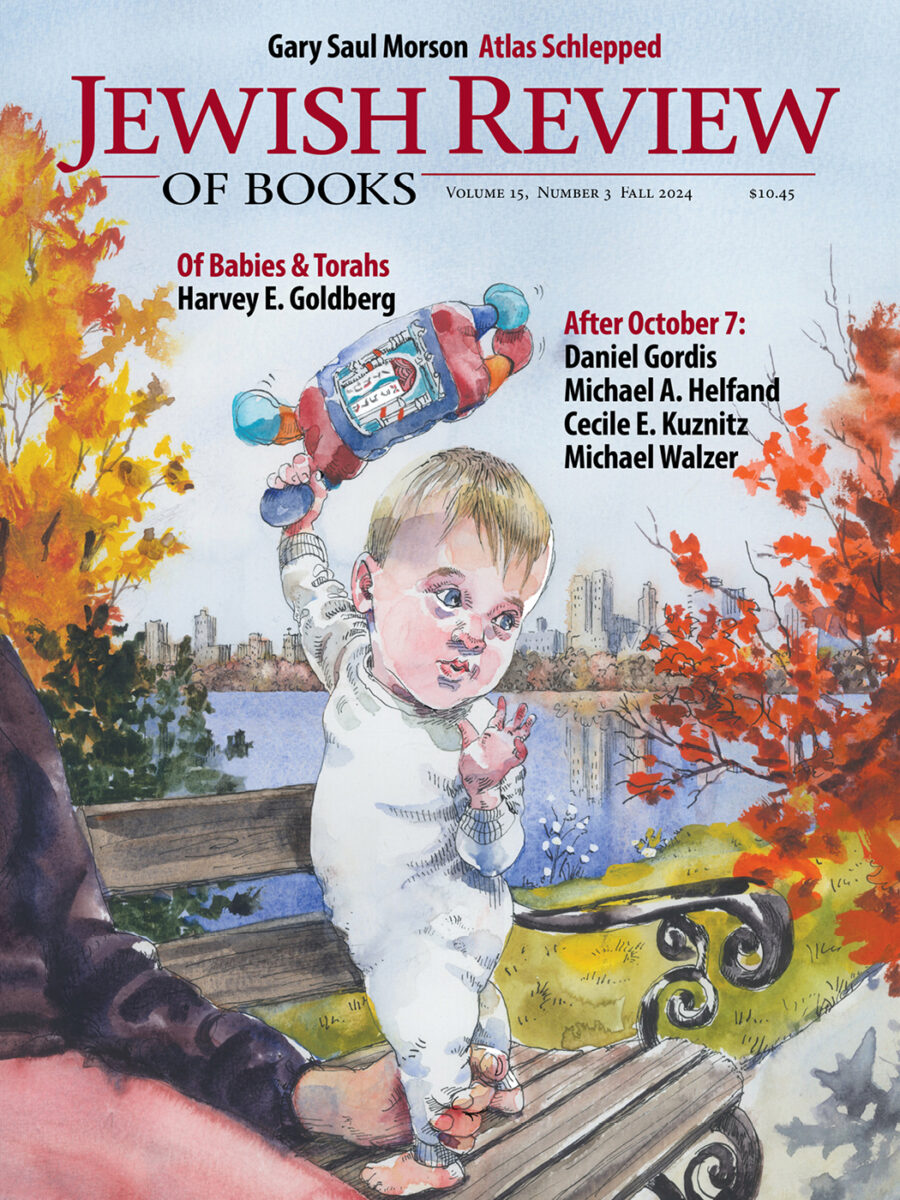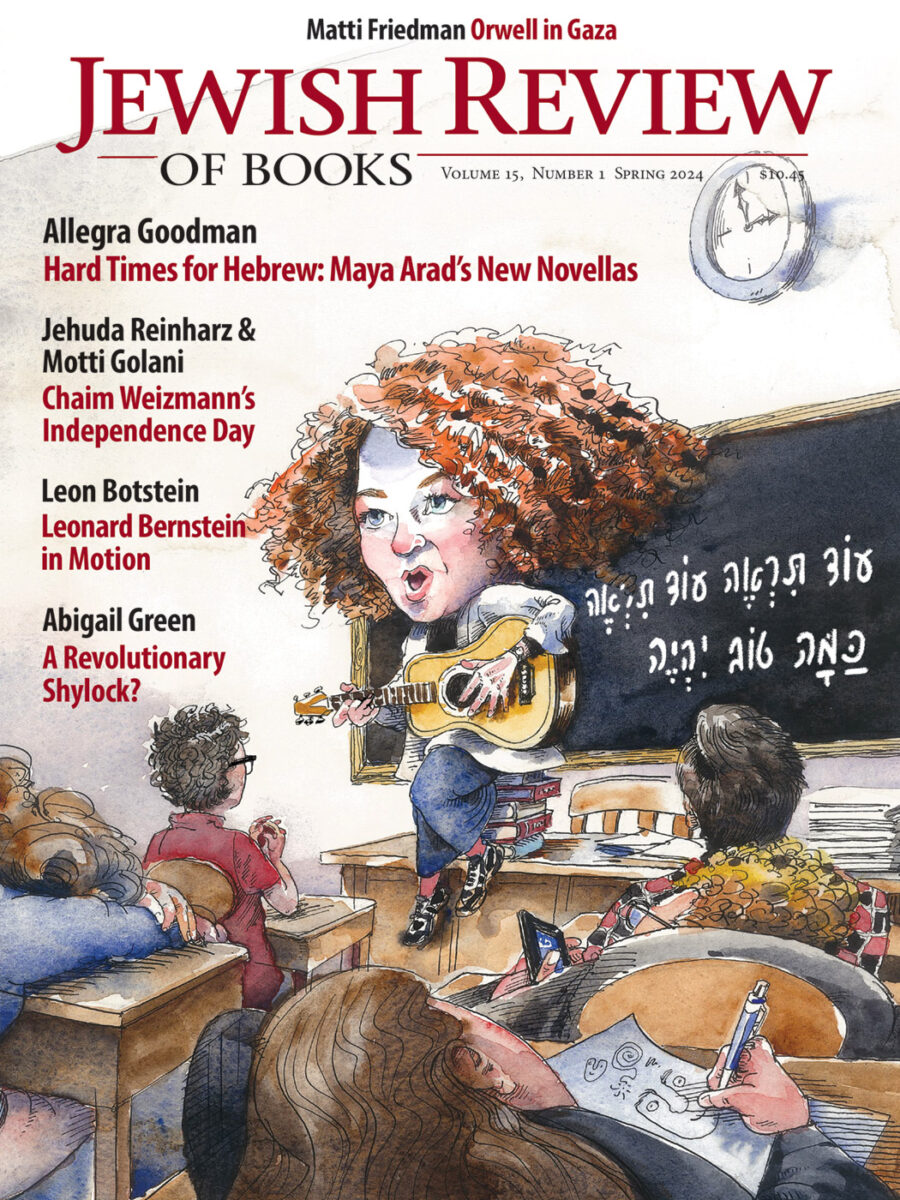Letters
Letters, Winter 2022
Bastard, Orphan...Jew?; Squirrel Hill; Great Sages
Features
Wild Things: The New Neo-Hasidism and Modern Orthodoxy
Who are Joey Rosenfeld and his pseudo-Hasidic pranksters, and what does their success have to do with the future of Modern Orthodoxy?
Reviews
An Entrepreneurial American
“Houdini created his illusions and handed them down to his brother Hardeen, Hardeen sold them to the Amazing Dunninger, and Dunninger sold them to—my father,” writes Jerry Muller in his review of Adam Begley’s new biography of the great Jewish escape artist.
All-of-a-Kind Americans
In the 1950s, Sydney Taylor’s All-of-a-Kind Family books for children told the story of American Jewish acculturation–and pushed the process forward.
An Indian Play in Warsaw
Janusz Korczak couldn’t save any of his beloved orphans from the Nazis. Jai Chakrabarti imagines one, and sends him to India. It’s a great premise, but does it work as a novel?
The Story They’ve Been Telling Themselves
“I wouldn’t turn on my beloved, my sacred husband,” Eva Panić firmly declared. Instead, she chose a brutal Yugoslavian prison–and abandoned her six-year-old daughter. David Grossman transforms their story into a disturbing yet beautiful novel.
An Israelite with Egyptian Principles
Judah Benjamin was a brilliant New Orleans lawyer who became the most important cabinet member in Jefferson Davis’s Confederate government. He was, Senator Benjamin Wade correctly declared, one of the “Israelites with Egyptian principles.”
This Shall Not Be in Vain
Rabbi Roland B. Gitelsohn was a pacifist when World War II started. Four years later he was chaplain at the Battle of Iwo Jima. His long-lost memoir has just been published.
Hasidism, Jung, and the Jewish Spiritual Crisis
Carl Jung said that the great “the Hasidic Rabbi whom they called the Great Maggid” anticipated his entire psychology. He learned that from his Jewish student Erich Neumann, whose Roots of Jewish Consciousness was never published until now.
The Arts
From the Shtiebel to the Hora
More than two hundred songs of the pioneers of the Third Aliyah began their lives as Hasidic tunes. But historian David Assaf’s wonderful new book reaches far beyond the Hasidic world in tracing the origins of the heart of the secular Zionist musical repertoire.
Mansions, Museums, and Magen Davids
In building (or rebuilding) grand houses in France and England Jewish immigrants created, brick by brick, edifices within their countries’ histories. Not all would survive World War II.
Last Word
He Shall Not Press His Fellow
Once every seven years, the Torah says, the economic playing field should be leveled, and those trapped in debt should be freed. Even the rabbinic workaround reminds us of the ideal–as I was reminded after my startup foundered in the 2008 financial crisis.
Past Issues

Issue No. 59
Fall 2024

Issue No. 58
Summer 2024

Issue No. 57
Spring 2024

Issue No. 56